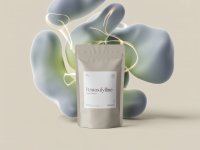
ginseng
Description
Ginseng, a revered herb in traditional medicine, particularly in Asian cultures, has been used for centuries to promote vitality and overall well-being. This comprehensive guide provides a clear and actionable overview of ginseng, covering its various forms, benefits, dosages, potential side effects, and expert recommendations to help you make informed decisions about incorporating it into your wellness routine. Whether you're seeking to boost cognitive function, enhance energy levels, or support your immune system, understanding the nuances of ginseng can empower you to harness its potential safely and effectively.
Quick Overview: ginseng At-a-Glance
- Key Benefits: Supports cognitive function, boosts energy, and enhances immune response.
- Primary Mechanism: Modulates neurotransmitter systems, reduces inflammation, and provides antioxidant protection.
- Best For: Individuals seeking to improve memory and focus, combat fatigue, and enhance overall vitality.
- Typical Dose Range: 0.5-3 grams of dry root per day, or 100-600mg of capsules.
- Key Caution/Consideration: Potential for interactions with medications and side effects like insomnia or headaches; consult a healthcare professional before use.
Table of Contents
Categories & Effectiveness
Learn about our rating methodologyBrain Health
Brain Antioxidant Shield
7/10Strong evidence of effectiveness
Neuro-Repair Support
7/10Strong evidence of effectiveness
Neurogenesis (BDNF/NGF)
7/10Strong evidence of effectiveness
Serotonin Support
7/10Strong evidence of effectiveness
Cognition
Memory & Recall
7/10Strong evidence of effectiveness
Mood & Stress
Cortisol Regulation
4/10Moderate evidence of effectiveness
Mood Elevation
4/10Moderate evidence of effectiveness
Stress Resilience
4/10Moderate evidence of effectiveness
Systemic Health
Anti-Inflammatory (Systemic)
7/10Strong evidence of effectiveness
Blood Pressure Regulation
7/10Strong evidence of effectiveness
Systemic Antioxidant
7/10Strong evidence of effectiveness
Vascular Health
7/10Strong evidence of effectiveness
Dosage & Side Effects
Recommended Dosage
Potential Side Effects
Bioavailability & Half-Life
Interactions & Stacks
Recommended Products
Premier Research Labs American Ginseng Supplement - American Ginseng Capsules, Herbal Ginseng Root Pills, North American Ginseng Herb Extract, Calming Energy Supplement - 60 Plant-Based Capsules
- Rated 4.7 stars by 29 customers
- Premium quality ingredients
Nutricost Korean Ginseng 1000mg Serving, 240 Capsules - 500mg Per Capsule, 120 Servings - Korean Panax Red Ginseng - Gluten Free & Non-GMO
- Rated 4.3 stars by 512 customers
- Premium quality ingredients
JungKwanJang Korean Red Panax Ginseng (1000mg) Energy Boost Everytime Extract Sticks, 30 Count
- Rated 4.2 stars by 152 customers
- Premium quality ingredients
As an Amazon Associate we earn from qualifying purchases. Prices and availability are accurate as of the date/time indicated and are subject to change.
Benefits by Use Case
Enhanced Memory & Recall
Ginseng has been shown to improve memory and cognitive function, particularly in tasks involving immediate and delayed recall. Studies suggest that consistent use over several months can lead to noticeable improvements, but individual results may vary.
Research Finding:
Subjects administered Panax ginseng powder for 6 months showed significant improvement on the Rey Complex Figure Test (RCFT) immediate recall and 20-min delayed recall compared to the placebo group.
Combating Fatigue
Ginseng can help reduce fatigue and increase energy levels, making it beneficial for individuals experiencing chronic fatigue or those recovering from illness. Its adaptogenic properties support the body's ability to cope with stress and maintain energy balance. However, those with high blood pressure should use caution.
Mechanism of Action
Frequently Asked Questions
Where to Buy ginseng
Based on quality, price, and customer reviews, here are our top recommended ginseng supplements:
Nutricost Korean Ginseng 1000mg Serving, 240 Capsules - 500mg Per Capsule, 120 Servings - Korean Panax Red Ginseng - Gluten Free & Non-GMO
- Rated 4.3 stars by 512 customers
- Premium quality ingredients
Awaken - Organic Energy Supplement - 2 oz Liquid in a Glass Bottle - Yerba Mate, Eleuthro Root, Red Ginseng, Peppermint, Ginkgo Blob, Ashwaganhda, Guayusa - by Khroma Herbs
- Rated 4.1 stars by 371 customers
- Premium quality ingredients
JungKwanJang Korean Red Panax Ginseng (1000mg) Energy Boost Everytime Extract Sticks, 30 Count
- Rated 4.2 stars by 152 customers
- Premium quality ingredients
As an Amazon Associate we earn from qualifying purchases. Prices and availability are accurate as of the date/time indicated and are subject to change.
Summary & Expert Opinion
For those seeking a deeper understanding, ginseng's benefits are tied to its complex composition and interactions with various biological systems. The ginsenosides, a diverse group of saponins, are considered the primary active compounds, and they exhibit a range of effects on neurotransmitter systems, inflammatory pathways, and cellular signaling. For instance, ginsenosides like Rb1 have been shown to modulate the release and reuptake of key neurotransmitters like serotonin, norepinephrine, and dopamine, potentially contributing to mood-enhancing effects. Other ginsenosides, such as Rg1, can influence the HPA axis, helping to regulate cortisol levels and manage stress responses.
The pharmacokinetics of ginsenosides are complex and influenced by gut microbiota. Many ginsenosides are poorly absorbed in their original form and require metabolism by gut bacteria into more bioavailable compounds like Compound K. Factors such as an individual's gut microbiome composition, diet, and concurrent use of antibiotics can significantly impact ginsenoside metabolism and, thus, their overall effectiveness. Furthermore, different types of ginseng have varying ginsenoside profiles. American ginseng, for example, is known for its higher expression of Rb1, while Asian ginseng contains a broader range of ginsenosides. These differences in composition may contribute to the varying effects observed with different ginseng types.
While most studies indicate that ginseng is safe for short-term use, potential long-term effects and less common risks warrant careful consideration. Some individuals may experience hormonal effects, such as breast pain or vaginal bleeding, and there are reports of potential liver toxicity, although these are rare. Furthermore, ginseng's potential to lower blood sugar and affect blood clotting necessitates caution for individuals with diabetes or those taking anticoagulant medications.
The research landscape also presents some conflicting results and methodological limitations. Some studies have shown significant cognitive benefits, while others have found limited or no effect. These discrepancies may be due to variations in ginseng type, dosage, study population, and cognitive assessment methods. Future research should focus on standardizing ginseng preparations, conducting larger and more rigorous clinical trials, and investigating the specific mechanisms by which ginsenosides exert their effects on the brain and body. In conclusion, ginseng offers promising potential for enhancing cognitive function, energy levels, and overall well-being, but a thorough understanding of its nuances and potential risks is essential for informed and safe use.








